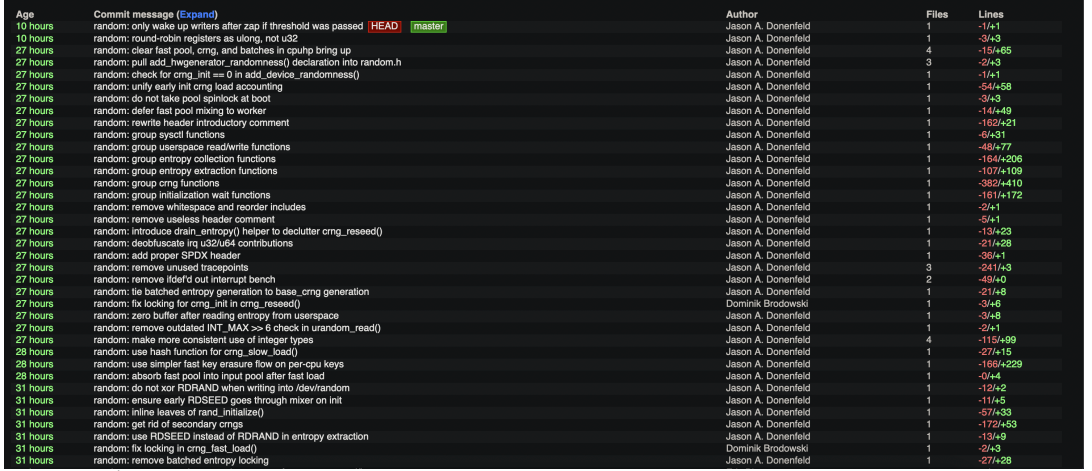Home >System Tutorial >LINUX >Performance increased by 8450%, Linux kernel functions greatly improved
Performance increased by 8450%, Linux kernel functions greatly improved
- WBOYWBOYWBOYWBOYWBOYWBOYWBOYWBOYWBOYWBOYWBOYWBOYWBforward
- 2024-02-09 17:50:12954browse
This is a deeply pseudo-original version: Jason Donenfeld is the main developer of WireGuard and the maintainer of the Linux kernel random number related code. Under his leadership, the Linux kernel's random number generator code was greatly improved.
In the previous version of Linux 5.17, Jason Donenfeld replaced SHA1 in the random code with BLAKE2s. Due to the nature of BLAKE2s, it is generally faster and more secure than SHA1. After testing, this simple switch resulted in a speed increase of approximately 131%.
Despite the huge speed improvements in Linux 5.17, Jason Donenfeld is not satisfied. Therefore, in Linux 5.18 version, he made more improvements to the random code.

By looking at the logs of Linux's random.git warehouse, we can see that (pictured above) , developer Jason Donenfeld has made a large number of code submissions in the past two days. These commits will all be introduced into the kernel when Linux 5.18's merge window launches in late March.

It was specifically emphasized in the email that the getrandom() call for getting random bytes can achieve better performance by using the latest code under development. After conducting the stress-ng getrandom() benchmark test on a device equipped with Intel Xeon E5-2697 v2 @ 2.70GHz CPU and 112G memory, a performance improvement of 8450% was achieved.
This change will basically change the previous global structure (actually a per-numa node structure) to a per-cpu structure, which means that many locks on the fast path will disappear. Therefore, there is no doubt that performance will improve when trying getrandom() simultaneously on a CPU with multiple cores. But I didn’t expect it to bring an 8450% improvement in the test.
In addition, when changing from per-numa to per-cpu, it will no longer need to be postponed until the work queue comes online. As I said before, this improvement will bring huge benefits to computers and servers with high core counts.
The above is the detailed content of Performance increased by 8450%, Linux kernel functions greatly improved. For more information, please follow other related articles on the PHP Chinese website!

